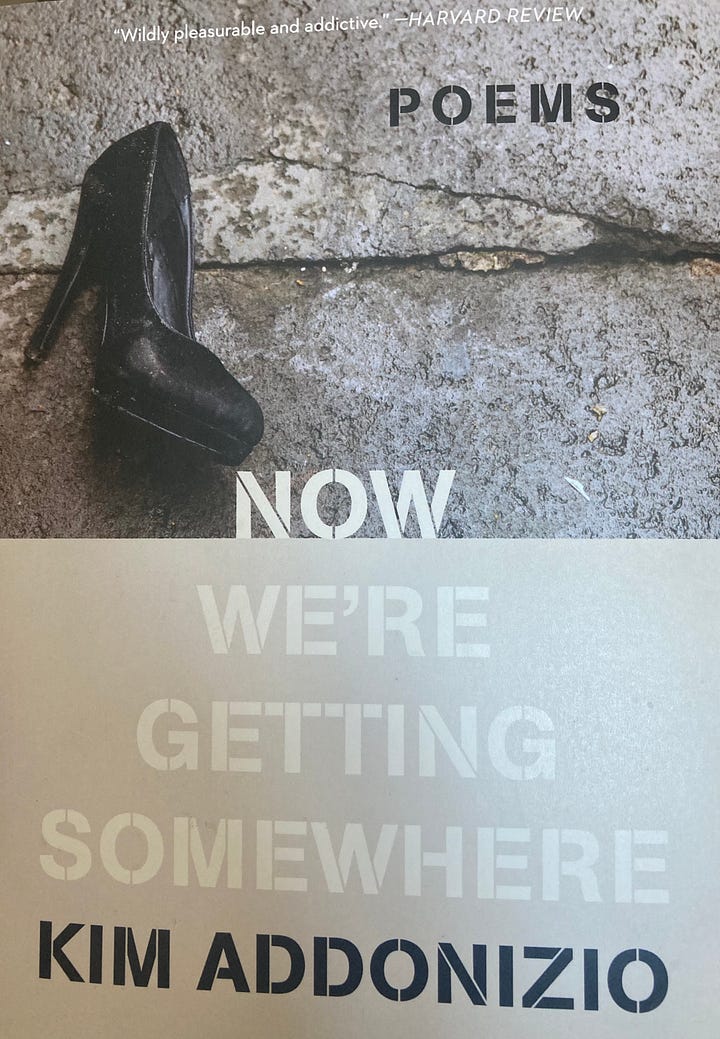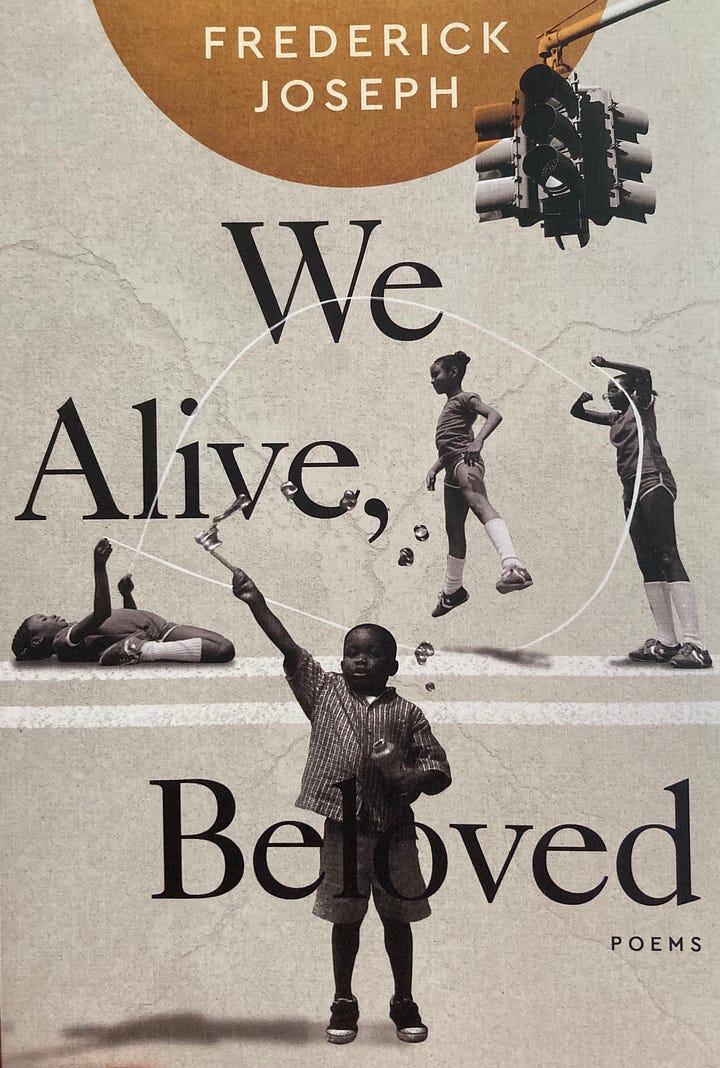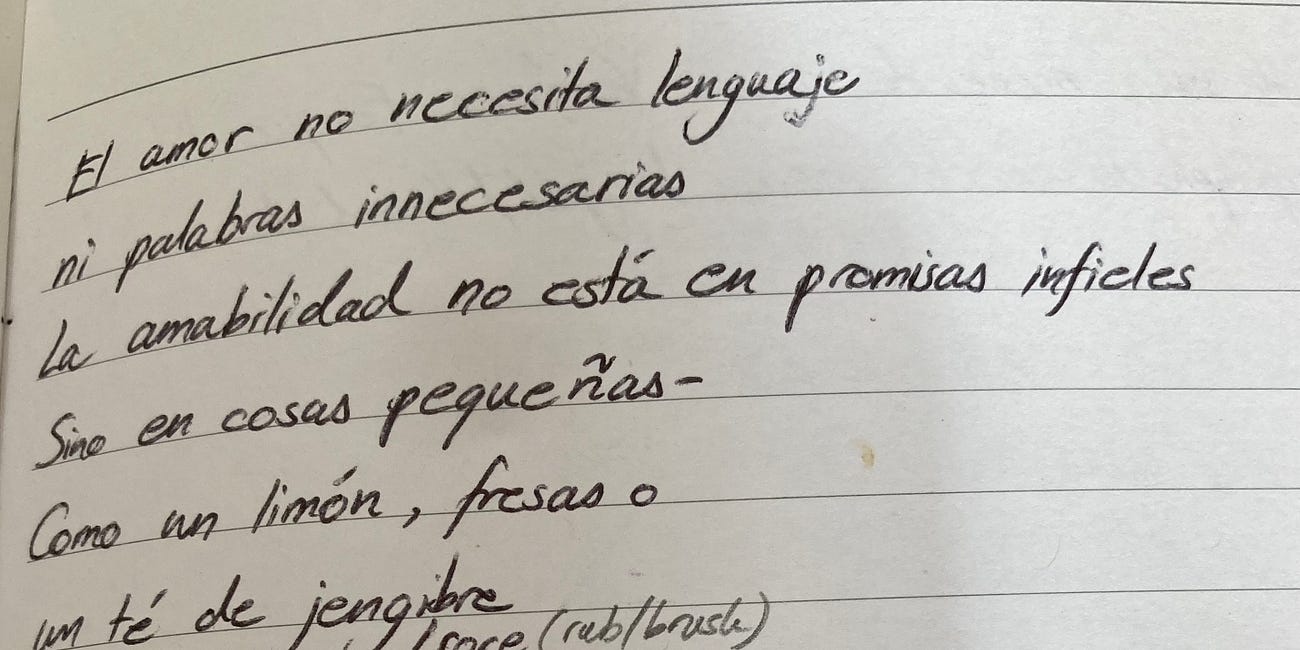

I insist that I am not a poet, yet I see poetry everywhere and in everything. I am subscribed to Poem-a-Day by poets.org, the Rumpus and the Sun Magazine’s newsletter, I listen to the New Yorker’s Poetry podcast when I go for a walk and here on Substack I read poetry by
and ’s beautiful newsletter Poetry Today.I insist that I am not a poet, yet the book that I am presently writing – the book that was supposed to be a collection of short prose and some poetry – is looking more and more like a collection of narrative poems with some prose!
Still, I will not call myself a poet. I don’t have the audacity to. Maybe because I look up to poets like those reverent demigods possessing divine sparks of inspirations that a mortal like me who writes in her third-speaking language will never possess.
I insist that I am not a poet, and yet I have such a visceral appreciation for poetry I wouldn’t be exaggerating at all if I said that poetry has saved my life times and times again. Poetry is my preferred choice of a self-soothing drug, and it is the drug I return to when I feel low, or “off.” Occasionally, I can’t stop myself from firing off another gratitude e-mail to my poetry teacher Stephanie Bolster whose name is synonymous with poetry for me, as it was in her class that I made my first timid attempts at writing poetry.
I insist that I am not a poet, and here I go again, writing another post on poetry. I want to share with you the beauty and hope I have recently found in the poetry of Kim Addonizio (thank you
!) and , which I discovered in the pages of the Sun Magazine. I was so touched – and transformed! – by their writing that I immediately ordered every book that they had ever written.Sometimes I find it difficult to put into words how a work of literature manages to make me feel suddenly like my feet lift off the ground and I float on some pink cloud that makes everything about our messed-up world beautiful again. But I will try to do that here, even if neither Kim Addonizio, nor Frederick Joseph need my endorsement. Still, it is a small gift I want to share with you here, in case you are not familiar with their work.
I have read their poetry out loud, multiple times, and returned to some of them over the next two weeks. True to my habit, I underlined sentences that moved me, covering the pages of their book with comments and smiley faces (my indication of a funny line/ dark humour), taking deep breaths, ruminating on the meaning behind the words and ideas, and when a poem called for it - allowing my tears to run down my face, or a laughter to escape, or do both of those things at the same time (an indication of the best kind of writing!) My teenage daughters thought I was going mad, but they are used to this by now. It is the most wonderful feeling in the world when literature can have such an effect on someone, and it is what I hope to accomplish as a writer.
My visceral, non-verbal reactions to the poems were a good indicator of what I appreciated about both of these poets’ approach: While they were writing with devastating honesty about the hardships they have endured, their poetry was always steering towards the light. Not ‘light’ as in fake optimism, but towards hope born out of that hardship that was supposed to break them.
Take Notes from Therapy, the first poem in Frederick Joseph’s We Alive, Beloved:
(Me in italics) “This world bruises us into retreat”… “crawling back to the womb, away”… “false starts” – These are all backward directions, but instead, Joseph writes about “the whisper of possibility”… “Each stroke – a choice.” I was particularly moved by the idea that “our lives are a gallery of unfinished portraits” and that with each stroke of choice, we can “write, rewrite, until the ink runs dry.” Yes, the writerly metaphor is apt for me as a writer, but we are of course also writing and rewriting the story of our lives, outside of writing, every moment. And the choices we make in how we live our lives can be as creative as the choices we make in our writing. The line “let it (life?) startle you” spoke to me so intimately – as I love nothing more when an artistic choice surprises and startles me, just as life has the potential to do the same.
Joseph writes about this inextricable link between life and art In On Days I am Dying: “I find just enough reason to breathe / in a Frank Ocean song. / Looping lyrics stitch a lifeline / to the parts of me sinking into silence.” In art he finds the hope:
Artists can be a buoy, tethered to tomorrow, uncoiling the sorrow knotted in the throat. Each chord, a conversation with the void, fleeting declarations of promise written in rhythms whispering you’re not alone.
Yes, I thought. I’m not alone, reading you Frederick Joseph, and thank you, I said, as I recognized myself – my deepest truth – in his beautiful words.
I could point out to this recurring theme of hope, resilience and beauty (and one of my favourite lines in this collection in his poem Clay, “old faults are stretched into beauty”) but I’m worried I might get carried away and end up writing a dissertation. There is so much more I can say on Joseph’s poetry, but I hope that I have given you enough of a reason to order his book and discover it for yourself. The title, We Alive, Beloved should be a good indication that this “radiant collection of poetry [does indeed] seeks to celebrate, cherish, and magnify the most beautiful parts of our existence.” (description on the book’s cover)
I was introduced to Kim Addonizio’s work through To the woman Crying Uncontrollably in the Next Stall.
And immediately fell in love. What?? I thought. So, a poem can talk about closing and opening your legs for someone, and utilize words like tampon and dildo, and still be a devastating / heart lifting poem? But it was the last line, “listen I love you joy is coming” that slew me. It felt so intimate, honest, and generous. Like Addonizio was speaking to me, quietly and lovingly, offering me a friendly reminder of that forever present joy; that glimmer of hope.
I started reading Now We’re Getting Somewhere on the bus to Val David. Addonizio’s opening poem Night in the Castle brought so much joy to that tedious bus ride, I felt I was with her on that artist’s grant in Umbria, contemplating killing a scorpion “twitching on the wall” with a “book of terrible poetry.” The page of this poem is peppered with too many embarrassing smiley faces next to lines like, “an underage duchess whose husband has finally died / of gout / leaving her free for more secret liaisons with the court musician / She might even have poisoned the duke, the lecherous shit”… and “I want to be feared & beloved queen ordering up fresh linens & / beheadings / locking up bad poets in their artisanal hair shirts / torturing academics with pornographic marionette performances”… I laughed out loud many times, revelling in the humour, the creative metaphors and imagery, all the while feeling for Addonizio’s loneliness that was palpable behind every humorous line.
Poems that can devastate me while making me laugh are very rare, but they are my favourite kind. I remember that in my first year of poetry class with Stephanie I was determined to write about joy. This is when I wrote my playful poem Névtelen. But then my life took another turn and the poems I wrote became very, very dark.
I seem to be returning to this theme of resilience. I will choose resilience over victimhood any time, and perhaps this is what I admire about these two poets, and anyone who is determined to turn pain into a super-power, especially through art. But I also recognize resilience’s dark side, when it can be taken to extreme. In my case, I confess, it is still a challenge to ask for help. I am learning. I also want to acknowledge that healing from trauma is not an easy, straight-forward process, and is not always possible. If I sound like I’m contradicting myself, that is because life is complex, and I am always most interested in exploring the grey zone. While I appreciate writing that was born out of hardship, I don’t want to promote pain. I’m with Elizabeth Gilbert on this. I reject the idea of the “suffering artist.” What life has taught me is that you don’t need to seek out painful inspirations. Life will bestow plenty on you, for free. And as an artist – not to mention, ordinary human being – you are better off meeting those challenges mentally healthy and balanced, to your best of your ability. In the meanwhile, poetry is always there as solace, as well as a reminder of the simple beauty in life. And I am so grateful that the writing of Kim Addonizio and Frederick Joseph can be my buoy that uncoils somewhat the sorrow knotted in my throat, and help me feel a little less alone.
More on poetry…
'Siamo Poesia' – We are Poetry
When my mum and I arrive in Rome’s Trastevere district, the following message greets me, a few houses down the same street of our charming guesthouse where we are staying (for the second time):siamo fatti di versi e non diversi fatti di parole che vanno a capo anche quando non te lo aspetti di rime che a volte si baciano…
Scribbles on Paper
Last week I wrote about the gift of poetry. As promised, this post is about my process of writing poetry. But, what a surprise! As I looked through some of my old writing files in an attempt to find a poem for this post, I discovered an essay from 2019 that I wrote for Stephanie Bolster’s poetry class…
You could also just share the gift of poetry :)








Thank you. For your lovely posts and poems, and for lovingly, glowingly sharing magnificent poems and poets! I just delightedly devoured two of your posts in a row and feel this warmth floating between my smiling face and my bubbling heart.
There’s one thing I disagree with though. *You are a poet.*
Anyone who has written a poem is a poet just like anyone who has eaten a meal is an eater, anyone who breathes is a breather. Refusing to acknowledge your poetness 😀is like like reserving that word for these poets that you are sharing: those in the top 1% of their craft and fame, as if everyone else is not a Real Poet.
I am a poet.
I have been writing poetry since age 9, and I just turned 60 last month. That’s half a century of poetry, a poem here and there until four years ago when my soul (in a dream!) decided on Spring Equinox 2021 that I would write a poem a day for a year. I have been doing so now for over four years. I do not have grants. Yet I am proud to declare that I am a poet, and a prolific one at that. BUT at age 9, when I wrote my first poem, in that very innocent, sweet moment, is when I became a poet.
So please do not deprecate yourself. And anyone who has such a love of poetry as you clearly has a very poetic soul.
I encourage you to look in the mirror and say to that creative, talented being: You are a poet.
Then say: I am a poet. And breathe it in. Let it land in your giddy heart and tickle your fingertips from the inside.
Then go write a poem if you feel the urge, and come back here and share it with us.
Or if that all feels too much like A Grand Gesture, how about: “I’m a poet and I know it, clap my hands!” clap! clap! 👏 👏😘
What wonderful poems you shared here (yours included). I occasionally wrote poetry too but would never call myself a poet. There are too many good ones out there.